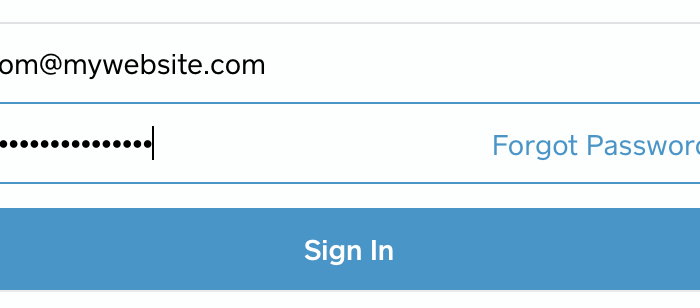I regarded viruses and malware as distant threats that happen to other people. That changed last week when my antivirus software displayed words you never want to see: Threat Detected.
Learn more about good password habits and how to keep your accounts and personal information more secure.
Secure passwords are essential for protecting your information and accounts online. This post examines some common poor practices you need to stop using or avoid when creating passwords.
Recent news about Zoom security and encryption, and whether you’re on a secure call, has raised privacy concerns among users – myself included. This post includes information on how to configure Zoom for hosting secure video calls.
Currently, there are many internet-connected (IoT) devices available for homes and businesses. Seniors and caregivers may find some peace of mind from the safety benefits of these devices. This post is the first in a three-part series discussing IoT devices. I’ll discuss what value IoT devices can provide seniors and their caregivers. Additionally, I’ll discuss possible privacy concerns using IoT devices.
More seniors are going online using phones, tablets, and computers for conducting personal business, getting news and information, staying in touch with friends and relatives through social media, pursuing romantic interests through online dating, conducting ancestry research, and many other very positive reasons. However, as the online senior population grows, it becomes increasingly important to provide the education, resources, and support for protecting seniors online.
As noted in my previous post Protecting Senior Citizens from Online Scams, scammers can use Social Engineering (or Phishing) in the form of false emergencies, financial scams, or tech support scams to steal personal information from unsuspecting seniors, such login credentials for bank and brokerage accounts. They can also use links in emails or web sites to deliver a payload and infect an unsuspecting senior’s computer with viruses or malware. Viruses and malware are types of malicious software that can damage your files (and possibly your computer), hijack your computer without your knowledge for nefarious purposes, or steal personal information for identity theft.
Seniors are vulnerable targets for scammers, fraudsters, and con artists attempting to acquire their money or personal information for identity theft, or potentially hijack the computers of unsuspecting people to steal personal information such as bank and brokerage account information. The internet can be fertile territory for these types of scams, and protecting seniors and loved ones from online scams has become increasingly necessary. This post discusses strategies for family and friends helping protect their parents or older friends and relatives from online scams.
Online dating can be a fun adventure, and a great way for seniors to find love and friendship. However, one of the most awful, hurtful types of scams is when a con artist feigns love or affection and attempts to steal money or property, or extravagant favors from a senior.








